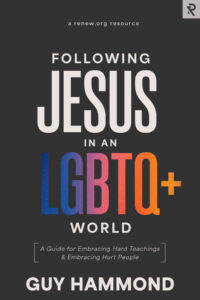On the morning of August 27, 2025, during Mass at Annunciation Catholic Church in Minneapolis, a 23-year-old transgender individual, identified as Robin Westman, opened fire through stained-glass windows, killing two young children aged 8 and 10 and injuring 17 others. Authorities have launched an investigation, calling this as an act of both domestic terrorism and anti-Catholic/Christian hate. Robin died due to a self-inflicted gunshot wound at the scene.
Tragedies like this shake us to our core. Every time violence arises from within our own communities—no matter the person’s identity—the wounds cut deeply. In this moment, we must respond not with scapegoating or anger, but with genuine sorrow, unwavering honesty, and compassionate candor.
An Opening Prayer:
Father, we come to You hurting and confused. We mourn the loss of precious lives, we ache for families, and we grieve the brokenness of humanity. Yet, we also cling to hope—knowing You are near to the brokenhearted, and that Your way is the way of radical love. Amen.
The Reality Behind the Statistics: A Crisis, Not a Political Weapon
As both a pastor and a counselor, I want to speak candidly. The LGBTQ+ community experiences mental health struggles at rates significantly higher than the general population—rates that cannot be ignored. According to national data from sources like the U.S. Centers for Disease Control and Prevention (CDC):
- LGBTQ youth are more than twice as likely to experience persistent feelings of sadness or hopelessness.
- They report suicidal ideation and intent at rates significantly above those of their heterosexual peers.
- Rates of anxiety, depression, substance use, and trauma-related disorders are markedly elevated.
These are not political talking points. They are the findings of research that points to a human reality. And let’s be clear, each number connected to this data represents a soul in anguish. When mental health crises go untreated, the results can be tragic—not just for the individual, but for entire communities. Many in our culture are currently refusing to acknowledge the reality of this mental health crisis, fearing that doing so might add further stigma to the LGBTQ community. Yet by remaining silent—because the issue is politically inconvenient and unpopular—we allow the problem to persist unchecked, with no real hope of resolution.
Some have argued that these disparities stem from social marginalization and cultural exclusion. We find evidence for that historically, in that rejection, stigma, and isolation have inflicted profound wounds. But, friends, that reason no longer suffices to explain today’s crisis.
“Each number connected to this data represents a soul in anguish.”
Cultural Shift: From Margins to Embraced—Yet the Crisis Persists
In my previous article (“Understanding the Pressures of the LGBTQ Movement in Five Decade‑Centered Shifts”), I traced how society has moved from cultural rejection of LGBTQ lifestyles toward increasing acceptance in North America. Yes, culturally, we have gone well beyond simple acceptance, as I acknowledge in the article. Where genuine progress has been made, it has brought broader social acceptance of groups of people who were once marginalized. Fear has given way to friendship in many places. Note: This is not to say that all of the cultural shifts we have seen in relation to the LGBTQ community are positive. It is simply an effort to acknowledge those that are. Scripture clearly teaches that lesbian, gay, bisexual, and transgender lifestyles are contrary to the will of God. So, we want to uphold God’s truth while we show love to all who struggle with sin and its consequences.
Additionally, we should also acknowledge that broader acceptance of these lifestyles in our secular culture does not automatically heal earlier rejection, battles with personal shame, or the strain of navigating identity in a wildly complex world. These cultural shifts cannot fully erase a history of emotional suffering, or unresolved mental health needs, or the impact of sexual relationships that God teaches are not in our best interests.
“Broader acceptance of these lifestyles in our secular culture does not automatically heal earlier rejection, battles with personal shame, or the strain of navigating identity in a wildly complex world.”
Beyond that, it is likely that the greater gains toward acceptance made in the last several decades have served to raise expectations within the LGBTQ community—expectations of even greater inclusion, affirmation, cultural representation, and political gains. When stretched beyond their reasonable limits, these expectations can turn into demands that religious groups, such as evangelical, Catholic, and Orthodox Christians, abandon sexual ethics rooted in biblical orthodoxy. For many believers, such a demand is simply a step too far. The resulting tension is undeniable, leaving many Christians to wonder how we will faithfully navigate the road ahead. How should Christians view and respond to the mental health crisis in LGBTQ communities?
Love First, But Honesty Next
As Christians, we are to love fiercely—even those we believe are living outside our biblical convictions. We must mirror Jesus: “I have not come to call the righteous, but sinners” (Matthew 9:13, NIV). Jesus loved sinners wholeheartedly, spoke truth boldly, and called them to life. That is our model.
At the same time, we cannot look away from hard truths. Turning a blind eye will only deepen the pain. When mental health issues lead to violence—even horrific violence like what happened in Minneapolis—we must respond with clarity, not silence. Here is a way forward:
- Acknowledge the mental health crisis disproportionately affecting LGBTQ communities.
- Encourage access to compassionate, competent mental health care.
- Create safe spaces for confession, grief, therapy, and healing in our churches.
- Reject anger, blame, or scapegoating—these distort grace and will hamper progress.
We are called to target people with love, never hatred—even when they embrace beliefs we cannot ourselves hold, or when they act in ways we cannot understand.
“We are called to target people with love, never hatred—even when they embrace beliefs we cannot ourselves hold, or when they act in ways we cannot understand.”
Biblical Orthodoxy and Biblical Love: Not Mutually Exclusive
Holding to biblically orthodox convictions regarding sexuality does not obligate us to hatred—in fact it is just the opposite. It is human to reject what we do not understand and turn away from what makes us uncomfortable. It is ever more human to react negatively in response to those who are mistreating or harming us. But this is not the way of God’s people. The apostle Paul commanded us: “Do not repay anyone evil for evil.…If your enemy is hungry, feed him; if he is thirsty, give him something to drink …” (Romans 12:17, 20, NIV). Every person—even one who has caused harm—should be an object of our love.
So, we maintain theological conviction while also offering radical hospitality and Christ-like presence—all this to show that suffering humanity can still be met with mercy.
What Could Christian Response Look Like?
- Empathy over argument: Before we lean into a doctrinal conversation, let’s wrap arms around broken souls.
- Accessible mental health care: Church communities should partner with qualified professionals to offer therapy that integrates faith, struggles of identity, response to trauma, and hope for the future.
- Prevention over condemnation: Screen for mental health crises early—not to stigmatize, but to care.
- Narratives highlighting hope and healing: Stories of redemption matter; they offer hope in the face of negative headlines.
- Praying together, at times in tears: We must be a people who mourn with those who mourn, offering the gospel as balm, never holding it before us as a shield.
To my fellow ministers, pastors, counselors, and church leaders: Let’s not act as though we have to choose between truth and love. Let us always choose both. Embrace those who are struggling—with compassion, conviction, and genuinely helpful resources.
To those who are a part of LGBTQ communities: We want to learn to love you relentlessly. Jesus is our model for this. You are not the sum of your crises and struggles—but an image bearer of God in need of healing. Your identity is not your sin, and your pain is not your shame (I say this while acknowledging we all have sin, and while my sin and yours are different, I am a fellow sinner).
“You are not the sum of your crises and struggles—but an image bearer of God in need of healing.”
To parents, teachers, and neighbors: Your vigilance, patience, and yes, your prayers, can save lives. Mental health crises are often hidden, and therefore silent. Always be watchful. Always be gentle. Always be ready with hope.
A Closing Prayer:
Father, we are broken—our world is broken. On August 27, 2025, violence once again needlessly stole the lives of the innocent. We cry out for the healing that only You can bring. Comfort grieving families, mend wounded hearts, and call us all into deeper compassion and truth. May Your Church be a place where mental health is addressed with courage, where people, in spite of their struggles, are received with grace, and where the love of Jesus overcomes the despair of the world. Amen.
A Final Thought
Yet again, we find ourselves at the intersection of tragedy and opportunity. The aftermath of this shooting—as with similar acts of unspeakable violence that have gone before—cannot be our legacy. Instead, we should strive to speak truth, be instruments of healing, and bear witness to a gospel that brings together both conviction and compassion. We want all people—all people—to know the God who loves them and to fully embrace that His design for life is truly the best way to live. That, in Jesus’ name, is the story we must tell.














One Response
Excellent article, Paul. I think the church must also be thinking about the future. Too often we assume that “gender transition” represents a permanent reality, when the data—and the testimony of human experience—suggest otherwise. Christians need to hold the line with both conviction and compassion, because this boomerang is already returning. When it does, the church ought to be ready to catch it with open arms and truth.